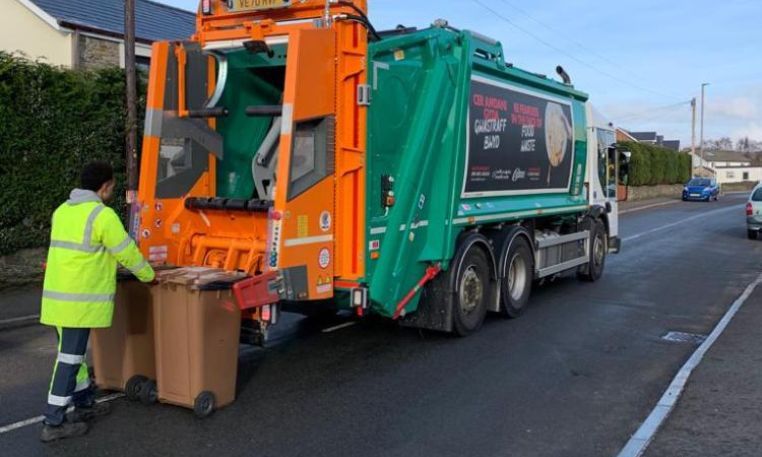NEW fines for Caerphilly residents who put recyclables in their general waste are a last resort and aren’t intended to make the council money, officers have insisted.
The county borough council is proposing an extension of enforcement powers that could ultimately land persistent culprits with £70 fixed penalty notices.
The proposal will form part of Caerphilly’s wider waste strategy, which is designed to improve the area’s low recycling rates and avoid multimillion-pound fines.
Marcus Lloyd, the council’s director of waste services, said the driving force behind the fines “is not about generating income, it’s about doing the right thing”.
Around 59% of what goes in general household waste could actually be recycled, the council estimates.
This includes food waste – and the council hopes the new policy will halve the amount of scraps and leftovers currently being thrown into the bin.
It could employ a team of six “advisors” to engage with residents who put recyclable material in their green residual waste bins.
Under the new proposals, residents will be sent leaflets explaining what goes in each bin or recycling container.
Anyone found in “non-compliance” will first be visited by an advisor, to provide further information on the breach.
Further incidents could lead to a second warning letter, followed by a legal notice and finally a fixed penalty notice.
Like parking tickets, the £70 fines would be reduced to £35 if paid quickly.
At a meeting of the council’s environment committee, on Tuesday April 29, Cllr Chris Morgan, the cabinet member for waste, said Caerphilly households produce more residual waste than national averages.
The council already runs a similar engagement and enforcement campaign for people found to not recycle at all, and Cllr Morgan said that work had led to “several thousand engagements” with residents, but “only a small number of cases” went on to require more serious measures.
But committee member Cllr Teresa Heron said she was concerned about the fairness of enforcement action, saying there should be an appeals process and some elderly residents could panic if they received an official warning letter.
Council waste strategy manager Rhodri Lloyd said the “long” engagement process worked on a “case-by-case” basis and the council would give “extra help” to residents who needed it.
Marcus Lloyd accepted some people’s general waste or recycling could unexpectedly be contaminated by a passer-by, throwing items like takeaway packaging into bins already out on the street for collection.
But he told the committee the council kept electronic records of contamination incidents, and if a household that normally recycles properly was suddenly flagged for non-compliance, the council would “take into account” the anomaly.
Cllr Judith Pritchard asked why the council was proposing to hire six more advisors only a few months after cutting its team of community safety wardens.
Marcus Lloyd said the council anticipates it can fund the new team by saving money on sending food waste for anaerobic digestion, rather than more expensive incineration fees for general waste.
The advisors would cost £230,000 a year, while a 50% improvement in food waste recycling could save the council £380,000 annually, the committee heard.
Following the committee meeting, cabinet members will be asked to make a final decision on the new enforcement rules at a future meeting.

















